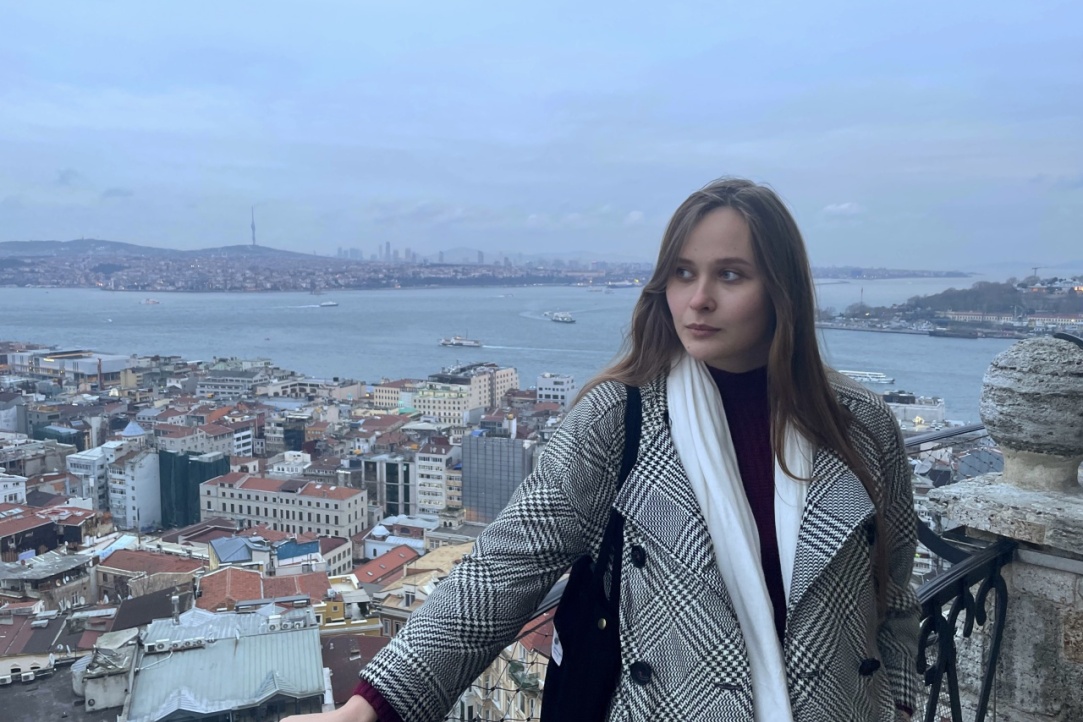‘You Can Discover Istanbul Again and Again’: Anastasia Akmalova on Exchange Studies in Turkey
Anastasia Akmalova is a 2023 graduate of the Bachelor's programme 'Political Science and World Politics'. Last year, she had the chance to study under the exchange programme at Boğaziçi University in Istanbul. Anastasia told us why she chose Turkey and shared her impressions of the country, city and university.

Choosing a Country and University
I was inspired to apply for the mobility programme by my parents. They supported me, but my choice was a total surprise to them. At the same time, a trip to Turkey was a natural choice for me: it was not a new country for me, so I had an idea of what to expect from life there. Istanbul, where I studied, differs from the rest of Turkey and is a kind of 'state within a state'. I dreamt about living in a city with a rich and exciting history at the crossroads of Western and Eastern cultures. In addition, I got tired of gloomy St Petersburg and wanted to warm up somewhere. Another reason was that in my dormitory, there were students from Boğaziçi University. They always spoke well about studying there, so my choice of university was inevitable.
Studies at Boğaziçi University
Boğaziçi University has several campuses, and each of them is a mini-town. Students can stay on the territory of the university around the clock. I was really surprised to find out that in the same building, there was a coworking space, a dining hall, a stall with traditional pastries, a print-and-copy centre, an administrative office, a shop with merchandise and even a hair studio. In addition, there were lots of cats! They joined us in our classrooms and could walk everywhere freely.
The university doesn't have a typical division into lectures and seminars: a lecturer decides how to structure a class and what activity to pay attention to. There were no double classes in the traditional sense: instead, one subject was taught in three 50-minute classes. I really liked that participation in seminars was of little or even no importance to the assessment for the course—it created a relaxed atmosphere and allowed us to take part in the discussion only when we truly had something to say. During the breaks, they often treated us to tea.
The majority of the lecturers got their education at leading world universities, so there were no doubts about their professionalism. Often, we addressed works by Turkish political scientists in class. It was interesting for me to look at classical political science concepts from an eastern perspective.
The Country
I have delightful impressions of the country. I discovered a different, non-tourist side of Turkey, having managed to travel. I was amazed by the hospitality and friendliness of the locals, who tried to help me even when I did not speak their language on a basic level. The most important thing is to treat the local culture and traditions with respect; then there won't be any problems. The Turkish mentality reminds me of the Russian one a lot, so it wasn't hard for me to adjust to the local culture-specific elements. Having lived in Istanbul for several months, I realised that I would like to come back here. You can discover Istanbul again and again: it is huge and multifaceted, and everyone can find a place for themselves. I'm drawn to coming back here over and over again even though there are plenty of other options.
Results of the Mobility Programme
The mobility programme—and life in another country in general—put me through some challenges. After overcoming them, I started to better understand myself, who I am, and what I want. I saw that people can live and study in a different way. During my stay in Turkey, I found people I could be close to. It is a pleasure to come back here and realise that someone is waiting for you. I hope to continue my studies in Turkey and dive deeper into this familiar and dear environment.
Text by Veronika Berdnikova

